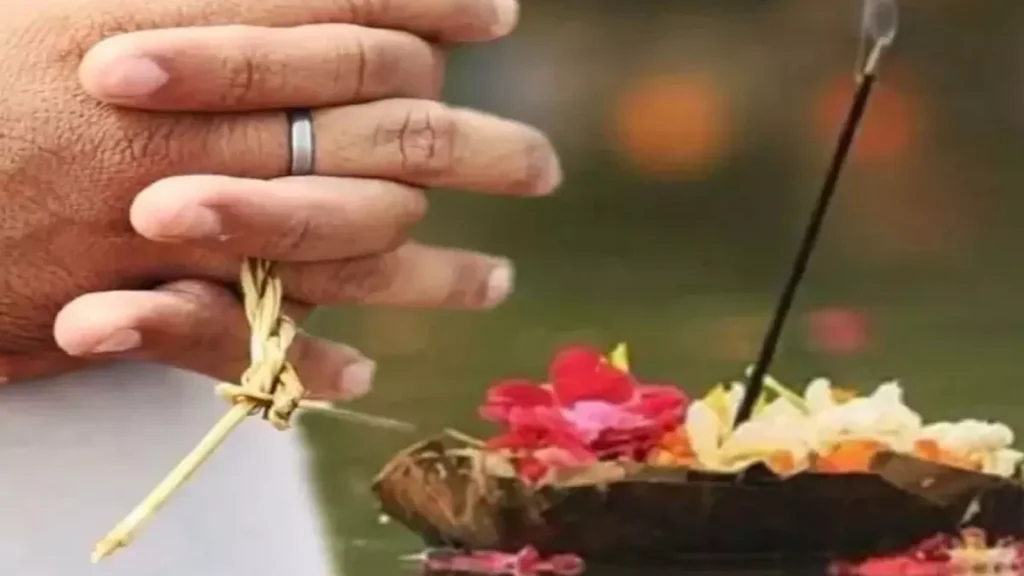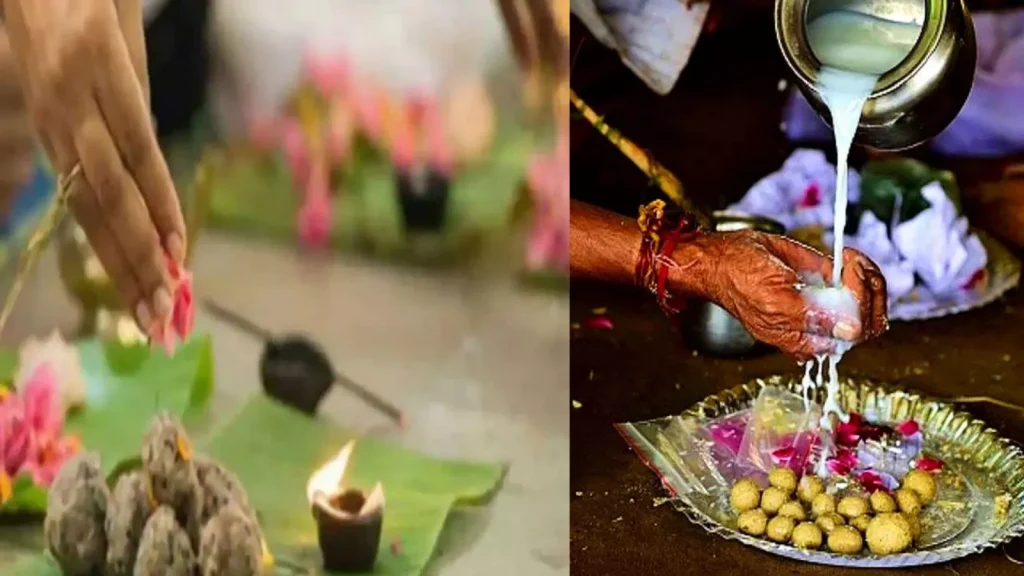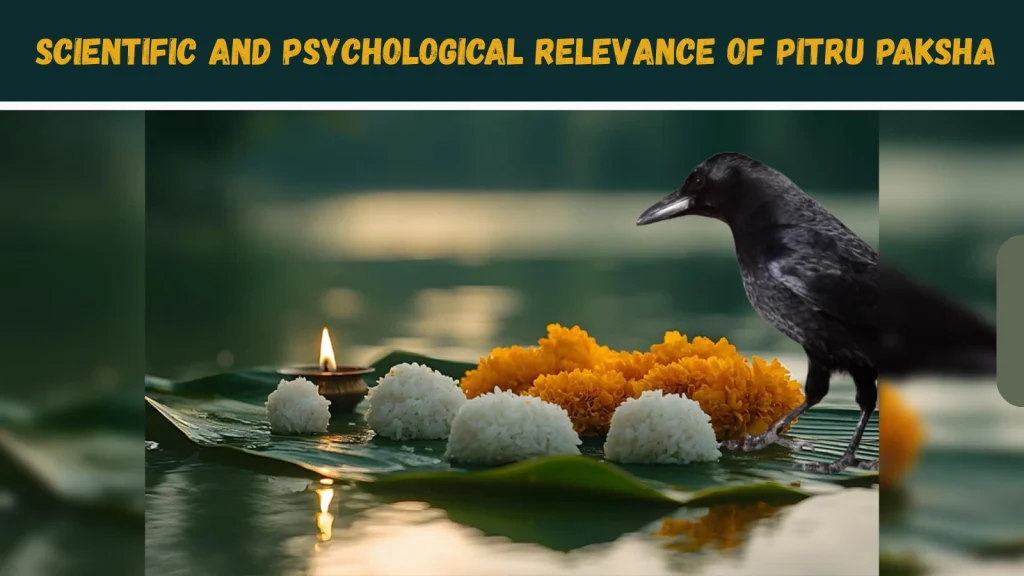India is a land of deep traditions, spiritual practices, and rituals that connect people to their roots. Among these rituals, pitru paksha holds a sacred significance. It is a time dedicated to remembering, honoring, and expressing gratitude to one’s ancestors. Hindus believe that paying homage during this period brings peace to departed souls and blessings to the living.
In this blog, we will explore the true essence of Pitru Paksha, its meaning, origins, rituals, and spiritual significance. We’ll also look at why this period remains important even in modern times and how its traditions continue to connect families with their ancestral roots.
What Is Pitru Paksha?

To begin with, many people wonder: what is Pitru Paksha? The term itself comes from Sanskrit, where “Pitru” means ancestors and “Paksha” means fortnight. So, Pitru Paksha refers to the 16-day lunar period in which Hindus perform rituals, offerings, and prayers for their forefathers.
According to ancient scriptures, it is believed that the souls of ancestors visit Earth during this time. Families offer food, water, and prayers to provide them peace and liberation (moksha). The rituals are often performed by the eldest son or male family member, although anyone in the family can take part with sincerity and devotion.
What Is The Mythological Significance Of Pitru Paksha?
The importance of Pitru Paksha is deeply rooted in Hindu mythology. One of the well-known stories comes from the Mahabharata. When Karna, the great warrior, died and reached heaven, he was given jewels and gold instead of food. Confused, he asked Yama, the lord of death, why he wasn’t offered meals. Yama explained that during his lifetime, Karna had donated wealth but never food to his ancestors.
Realizing this, Karna was allowed to return to Earth for 16 days to feed the needy and honor his forefathers. These 16 days are said to have become the sacred period of pitru paksha, where offerings of food and charity became central practices.
Also Read: How Hanuman Chalisa Helps In Sade Sati
When Is Pitru Paksha Observed?
Pitru Paksha is observed every year in the lunar month of Bhadrapada, starting on the full moon day (Purnima) and ending on the new moon day (Amavasya). Since it follows the Hindu lunar calendar, the dates vary each year.
In 2025, Pitru Paksha will be observed from Sunday, 7 September 2025 to Sunday, 21 September 2025. During this sacred 16-day period, Hindus across the world perform rituals such as shraddh and tarpan to honor their ancestors and seek their blessings.
For accurate festival dates, auspicious timings, and personalized guidance for rituals during Pitru Paksha, visit AstroLive. Expert astrologers there can help you perform the ceremonies at the right time and with complete devotion, ensuring peace for your ancestors and prosperity for your family.
Check Auspicious Timings With Today’s Panchang
What Rituals Are Performed During Pitru Paksha?

The rituals of Pitru Paksha are carried out with deep faith and discipline. Some of the key observances include:
Shraddha Ceremony:
Shraddha is the most important ritual during this time. It involves offering food to ancestors, Brahmins, and sometimes crows, which are believed to symbolize the souls of the departed.
Tarpan (Offering of Water):
Tarpan is performed by offering water mixed with black sesame seeds, barley, and kusa grass. This is believed to quench the thirst of ancestors in the afterlife.
Feeding the Needy:
Charity and feeding the poor are integral to the rituals. Sharing meals with the less fortunate is considered a way of honoring ancestors and spreading blessings.
Pind Daan:
Pind Daan, the offering of rice balls mixed with ghee, barley, and black sesame seeds, is performed to help ancestors attain moksha. Many families travel to holy places like Gaya, Haridwar, and Varanasi to perform this ritual.
Observing Fasts and Simple Living:
During Pitru Paksha, families avoid celebrations, weddings, or auspicious beginnings. It is also considered inauspicious to buy anything new during this time. Instead, the period is observed as one of remembrance, humility, and simplicity.
To understand these rituals in detail and perform them correctly, you can consult expert astrologers on AstroLive and book a pooja. They will guide you with the right practices, timings, and personalized advice to honor your ancestors with devotion and receive their blessings.
Why Pitru Paksha Is Important?
The importance of Pitru Paksha goes beyond religious duties. It connects individuals to their lineage, reminding them that their existence is built upon the sacrifices of those who came before. Here’s why this period is significant:
- Spiritual Peace: Rituals help ancestors attain liberation and peace in the afterlife.
- Family Harmony: Performing shraddha is believed to remove ancestral curses (pitra dosh) and bring prosperity to families.
- Cultural Continuity: It helps younger generations understand their roots and respect their heritage.
- Personal Growth: Acts of charity during this time foster humility, compassion, and gratitude.
How Do Different Regions In India Observe Pitru Paksha?
While the essence of Pitru Paksha remains the same across India, each region follows its own customs and practices to honor ancestors:
- North India: Families, especially in states like Bihar and Uttar Pradesh, often travel to Gaya, one of the holiest sites for Pind Daan. Performing rituals here is believed to grant peace and moksha to the departed souls.
- South India: Rituals are commonly performed on riverbanks. Offerings such as cooked rice, sesame seeds (til), and banana leaves are used to appease the ancestors.
- West Bengal: The last day of Pitru Paksha, known as Mahalaya, holds special significance. On this day, prayers are offered to forefathers, and it also marks the beginning of Durga Puja celebrations.
- Maharashtra & Gujarat: Families observe Shraddha with fasting, prayers, and charity. Donations often include food grains, clothes, and essentials for the needy, symbolizing respect for ancestors and spreading goodwill.
Also Read!
The Truth About Mahadasha & How It Shapes Your Life?
Do’s And Don’ts During Pitru Paksha
There are certain guidelines that families follow during this time to maintain sanctity:
Do’s:
- Perform rituals with full faith and devotion.
- Offer freshly cooked vegetarian food during shraddh.
- Feed Brahmins, cows, dogs, and crows, as they are believed to carry offerings to ancestors.
- Engage in acts of charity.
Don’ts:
- Avoid starting new ventures or buying luxury items.
- Weddings, housewarmings, and festive celebrations are not conducted during this period.
- Non-vegetarian food, alcohol, and entertainment are avoided.

How Is Pitru Paksha Observed In The Modern World?
In today’s busy life, rituals like pitru paksha serve as reminders of timeless values. Even if one cannot perform elaborate rituals, simple acts of remembrance, like lighting a lamp, offering prayers, or donating food, can honor the memory of ancestors.
Modern families, especially those living abroad, may not always have access to priests or traditional setups. However, online platforms now allow people to arrange for shraddha ceremonies in holy cities like Gaya or Haridwar, ensuring that traditions continue regardless of geographical limitations.
To make sure your rituals are performed at the right time with accurate Panchang guidance, you can consult AstroLive. Their expert astrologers provide clarity, auspicious timings, and spiritual advice so you can observe pitru paksha with devotion and peace of mind.
What Is The Scientific And Psychological Relevance Of Pitru Paksha?

Beyond mythology, Pitru Paksha also has psychological and social importance. Ancestor remembrance is not unique to Hinduism; many cultures worldwide honor their dead. Psychologists suggest that such practices help families cope with grief, strengthen family bonds, and create a sense of belonging.
From a scientific perspective, the timing of pitru paksha often coincides with seasonal changes. Eating light, sattvic food and fasting helps the body adjust to the transition from monsoon to autumn, aiding in digestion and overall health.
Conclusion
Pitru paksha is not just about rituals; it is about gratitude, remembrance, and respect for the generations that paved the way for us. By observing it with devotion, families strengthen their spiritual connection, maintain harmony, and pass on cultural values to younger generations.
Whether you ask when is Pitru Paksha 2025 or reflect on its deeper meaning, the essence remains the same– honoring our ancestors with love and humility.
Celebrate Pitru Paksha with clarity and devotion. Let AstroLive guide you with auspicious timings, Panchang insights, and spiritual wisdom so you can perform the rituals in the most meaningful way.







